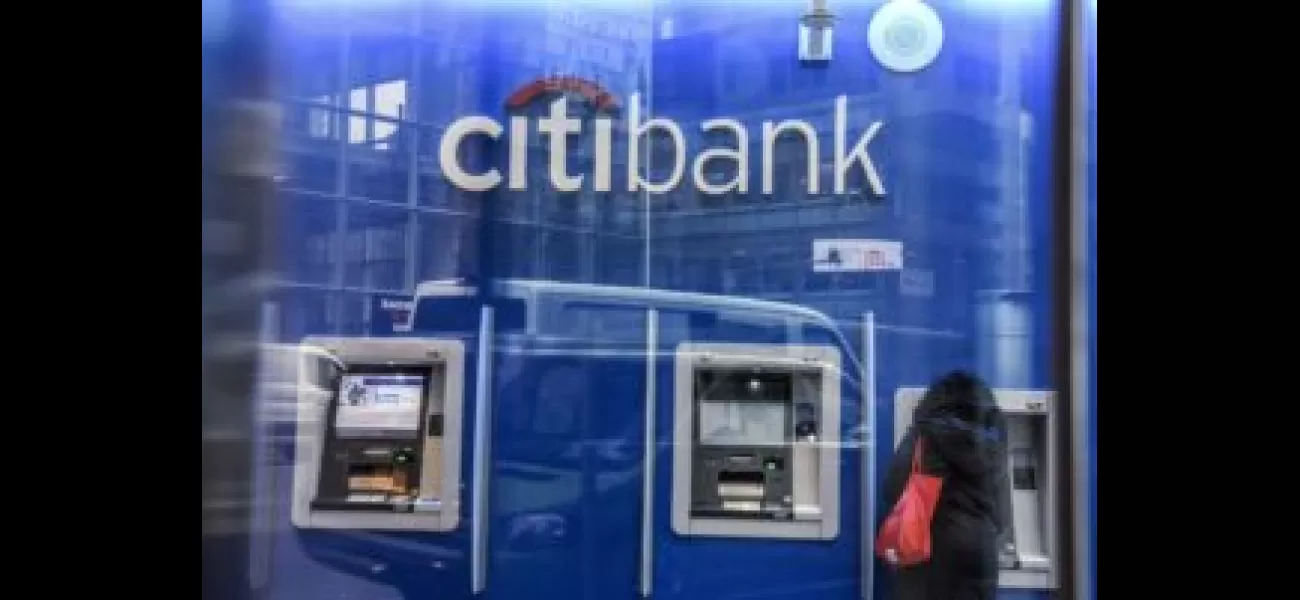Citibank is requiring customers to switch to digital banking or lose access to their accounts.
Citibank asked credit card customers to stop receiving paper statements.
November 9th 2023.

Citibank recently implemented a new "beta program" that is requiring credit card customers to opt for digital bank statements if they want to keep their online accounts. The notice read, "We're requiring you to authorize a switch to Paperless Statements and Legal Notices to maintain access to your account," according to The Wall Street Journal.
The decision to go paperless on a mass scale has been met with some opposition from consumer advocates. They are calling on the Consumer Financial Protection Bureau (CFPB) to do something about financial institutions requiring paperless correspondence.
As of 2022, around two-thirds of credit card customers are enrolled in paperless billing. This is a 36% increase since 2015, however, The Daily Mail reported that only 10% of customers opened the statements that were sent as PDFs last year. The CFPB shared that customers are, essentially, "opting out of reviewing their statements entirely" when they choose to go paperless.
The Ascent, a Motley Fool Service, shared some benefits and drawbacks of opting for digital statements. On the one hand, customers may feel more secure since non-paper billing documents reduce the risk of money and identity theft. Additionally, some companies charge customers for paper statements, which can be a cost-saving measure. On the other hand, paper documents may be more fitting for business owners or those in charge of someone else's account. Furthermore, some companies don't share statements from a year or more ago, making paper statements a better choice in these cases.
In conclusion, it is important to consider the pros and cons of opting for digital bank statements. Although the option promises convenience and cost savings, there are some drawbacks that should be taken into consideration before making a final decision.
The decision to go paperless on a mass scale has been met with some opposition from consumer advocates. They are calling on the Consumer Financial Protection Bureau (CFPB) to do something about financial institutions requiring paperless correspondence.
As of 2022, around two-thirds of credit card customers are enrolled in paperless billing. This is a 36% increase since 2015, however, The Daily Mail reported that only 10% of customers opened the statements that were sent as PDFs last year. The CFPB shared that customers are, essentially, "opting out of reviewing their statements entirely" when they choose to go paperless.
The Ascent, a Motley Fool Service, shared some benefits and drawbacks of opting for digital statements. On the one hand, customers may feel more secure since non-paper billing documents reduce the risk of money and identity theft. Additionally, some companies charge customers for paper statements, which can be a cost-saving measure. On the other hand, paper documents may be more fitting for business owners or those in charge of someone else's account. Furthermore, some companies don't share statements from a year or more ago, making paper statements a better choice in these cases.
In conclusion, it is important to consider the pros and cons of opting for digital bank statements. Although the option promises convenience and cost savings, there are some drawbacks that should be taken into consideration before making a final decision.
[This article has been trending online recently and has been generated with AI. Your feed is customized.]
[Generative AI is experimental.]
0
0
Submit Comment





